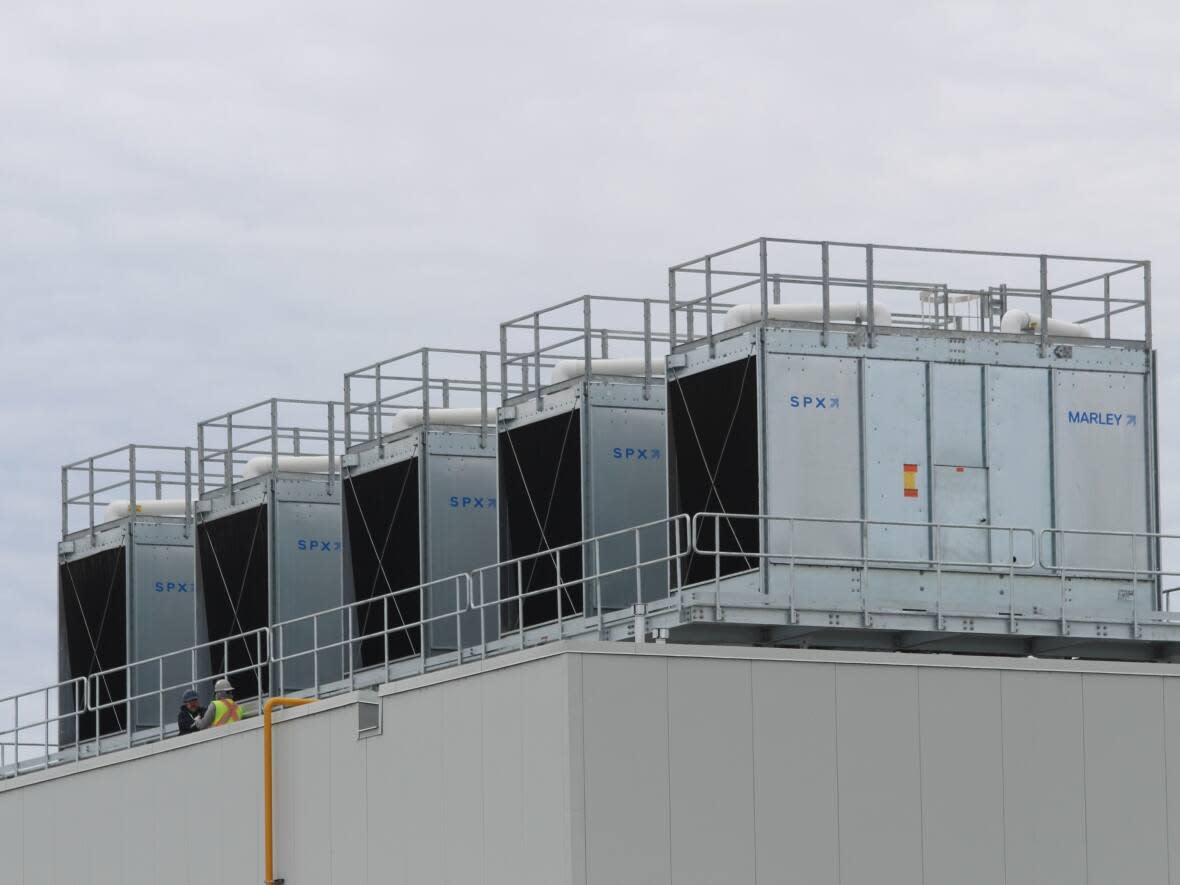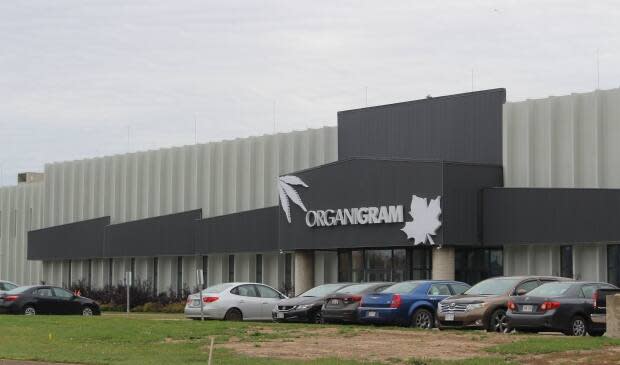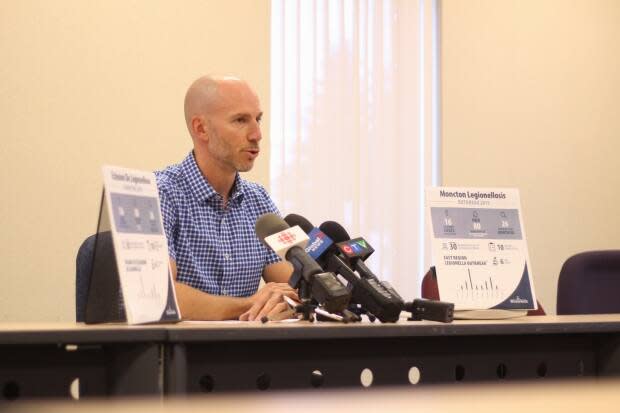Organigram didn't regularly clean cooling towers linked to 2019 legionnaires' outbreak

A newly released report by New Brunswick Public Health says Organigram had no regular cleaning of cooling towers that were the source of a 2019 legionnaires' disease outbreak in Moncton.
The 60-page document, which doesn't name the cannabis grower, examined the outbreak that infected 15 people with the severe form of pneumonia. It says the company's facility had two new cooling towers in 2019 that didn't have a chemical treatment system activated.
"Additionally, upon further review of their operations and maintenance, many elements that would be considered best practice were not identified," says the report released to CBC this month following a right to information request.
"Regular cleaning and disinfection were not scheduled, and there was no documented water safety or maintenance plan."
It also said testing was using a method "not necessarily well correlated" to detecting legionella bacteria.
The internal report led to New Brunswick passing legislation this spring imposing a cooling tower registry and testing and maintenance rules to reduce the chances of future outbreaks. Health Minister Dorothy Shephard referred to some of the findings when introducing the legislation for second reading.
Cooling towers are mechanical equipment that can be part of a building's heating and cooling system. They use water evaporation to remove heat and release it into the atmosphere.
If legionella bacteria is present in the water, it can be aerosolized and spread over several kilometres by the wind. Those who inhale water droplets with the bacteria may then contract the illness. It doesn't spread person-to-person.

Organigram in 2020 issued a statement saying it "regrets" what occurred.
The company would not provide an interview.
"As a matter of policy we don't comment on matters related to an ongoing litigation," Alisha Fernandes, Organigram's senior manager of communications, said in an email to CBC.
A dozen separate lawsuits were filed against the company alleging it was negligent. Eleven were quietly ended by consent of both sides in 2021.
The company has yet to file a statement of defence in a twelfth case which is still ongoing, according to the court records website.
The Public Health report states "while there were identified deficiencies in their practices, it is not believed that any oversight was intentional."
"The site did show a clear desire to 'do the right thing' once the problem was identified and went over and beyond what was asked of them by Public Health."
Dr. Yves Léger, a regional medical officer of health, told reporters in 2019 that proper maintenance and testing can help prevent outbreaks related to cooling towers.
"So I don't think anything is preventable 100 per cent of the time, but I think for the most part, to me, it seems like it's something that should be preventable, yes."

Léger also told reporters in 2019 he'd recommend a cooling tower registry as part of a report examining the outbreak.
The report was still a draft in the summer of 2021 when more legionnaires' disease cases in the Moncton-region led Public Health to declare another outbreak suspected to be from cooling towers. One person died.
It was later determined that no single source was responsible for the cases, though several cooling towers were found with higher legionella bacteria levels.
Shortly after, Shephard pledged to introduce cooling tower legislation by this spring. That law received royal assent on June 10.

The report by Léger and Sarena Lee, a Public Health inspector, details the epidemiological, environmental and laboratory work involved in the 2019 outbreak.
It says 16 confirmed legionnaires' disease cases were reported between July 15 and Aug. 27, 2019. Fifteen were tied to the outbreak. Of the 15, all lived or worked within five kilometres of Organigram's production facility.
The report highlights how staff with the City of Moncton were required to help locate cooling towers because there was no central list. High resolution aerial imagery and site visits were used to locate the equipment.
The report says the lack of a central registry likely delayed the detection of the source by about a week.
On Aug. 12, 2019, sampling at what the report calls "site b" with multiple cooling towers found "very high levels of legionella" and Public Health ordered the towers shut down.
The following day, an email to Organigram employees obtained by CBC says it had received an "unexpected report of elevated bacteria counts in our NEW cooling tower system" for an expansion of the production facility.
The email noted there was no indication the bacteria affected the company's products.

CBC filed a right to information request for the draft report in August 2021.
The province in February said it wouldn't release the report, citing a section of the right to information legislation allowing it to withhold "advice to the minister."
CBC filed a complaint about the withholding of the document with the province's ombud. On June 6, the province released the report and recommendations in full, reversing its earlier position.


